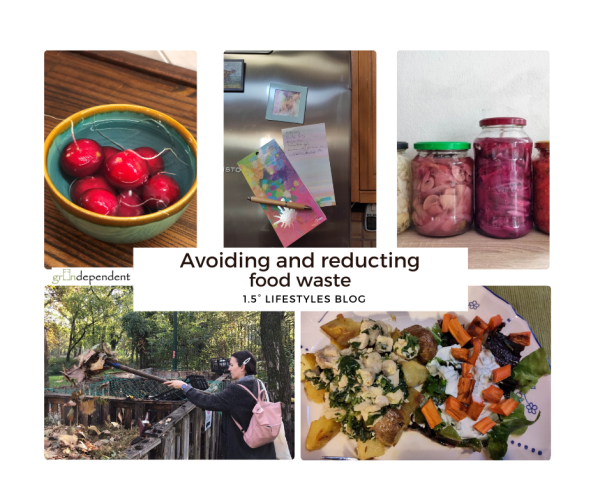
Reducing the carbon footprint of our individual and household food consumption is essential to minimise food waste in our homes. Of course, this is not only important in terms of reducing our carbon footprint, but also in terms of reducing the waste of resources used to consume other discarded, unused food and drink and the associated negative environmental and social impacts. Moreover, we can do all this basically without spending extra money, by changing our everyday habits, practices and daily routines.
Here are some ideas from the GreenDependent Team.
Edina Vadovics and Kristóf Vadovics – shopping at small (local) places, fridge and freezer monitoring, creative ways to reuse leftovers
For us, reducing food waste starts with shopping. Perhaps the most helpful way is not to buy perishable food from supermarkets and hypermarkets, but from local bakeries and shops, join local box and vegetable schemes, and frequent local markets. This way, we typically do not buy food for several weeks at one time – and there is less chance of overbuying in the first place. Especially since we try to go everywhere by bike. Of course, to complement this, we absolutely need a shopping list, which we keep on the fridge, and write down when we run out of something, need something, or need something.
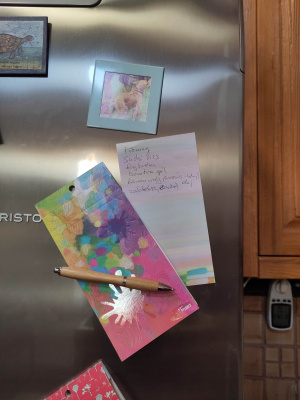
Besides, we cook and bake with what we have at home... So we do at least a weekly check of what we have in the pantry, the fridge, and maybe a little less often, in the freezer (we made a conscious decision years ago to not have a separate freezer, so we only have small freezer as part of the fridge). These regular checks also help us keep track of what we have at home, and to pay attention to “use before” and “best before” dates.
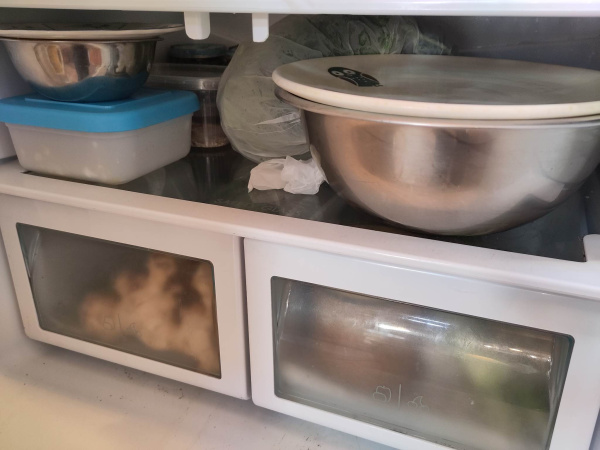
Of course, no matter how conscious and thorough we are, there is often something we just have to eat, so we are getting better and more inventive at giving new form to the sometimes rather sad-looking bits of food that lurk in boxes, bowls or jars. So, we have become good at turning various boiled and roasted vegetables into cream soups, salads or a rice or pasta salad. In these can also make great use of leftover bits of cheese and pieces of meat lying around in the fridge. They can also become parts of our lunch for the next day at work.
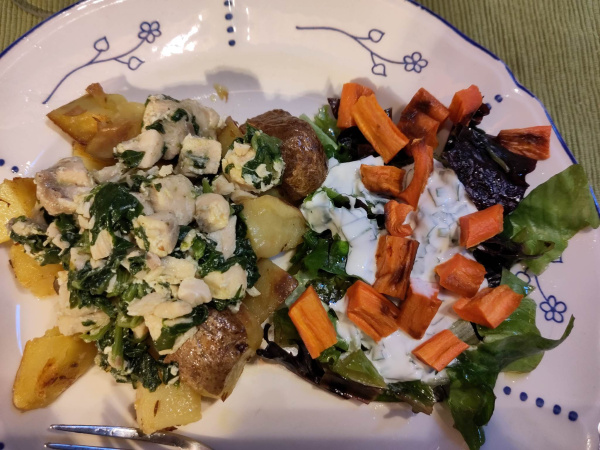
If we happen to cook too much food - or have too many almost gone off vegetables and fruit to process - and we know in advance that we will not feel like eating them for the next few days, we freeze them in small portions to eat later. While we do not usually label the boxes in the fridge (as the picture above indicates), we always label what we put in the freezer, because it can be harder to identify them or remember dates without reminders.
Finally, if we do have food waste and it can be composted at home, we compost it in our garden. In addition, we are waiting for some structural support, i.e. the possibility of industrial composting and the collection of biowaste from households to be introduced. Nevertheless, our objective if still to leave such collection bins empty most of the time. :)
Anita Szőllőssy – Sorting, and what is waste, after all?
My favourite tip when it comes to food waste is to think carefully about what is waste. Do we peel mushrooms, carrots, cucumbers...? Do we eat the stalk of an onion, the skin of a potato? If we eat meat, do we eat as much of the animal as possible?
For example, a small vegetable brush can help clean vegetables. You can also use it to clean potatoes, bake them in their skins and boil onion stems in a variety of dishes. The last question is harder for me to answer because I am a vegetarian, but my cat has always been a good consumer of leftovers (appropriate for him, of course).😊
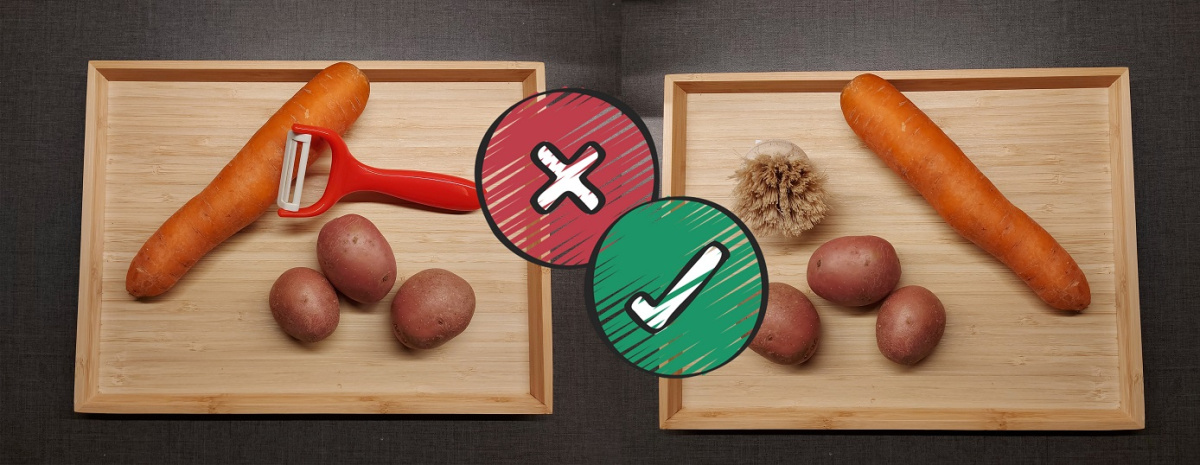
What causes me a lot of problems is that I buy too much of what I like, and I forget that I already have three at home... So now, I have started to organise my cupboard, and I do not buy any more of the things that do not fit in their designated place. It also helps me to stick to my limits is that we do not have a very big fridge, and we try not to overcrowd it – which is important to remember for energy saving purposes as well.
Although it is not about avoiding food waste, but rather dealing with it, I would like to mention composting as well. I was very pleased to see that the condominium building we recently moved into has applied to the municipality for several of its own community compost bins. And I can collect the compost in a small container in the apartment taking it to the community bins.
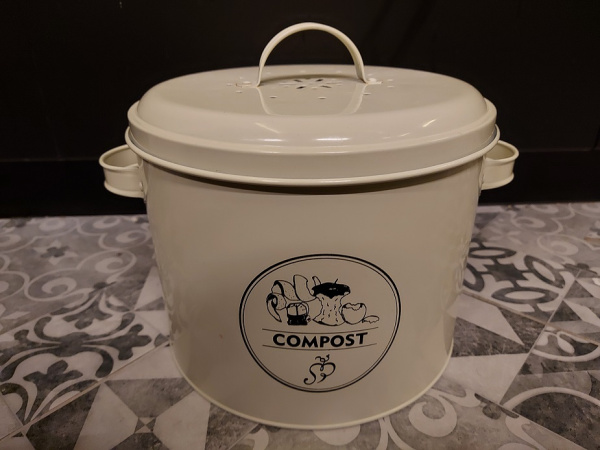
Edina Mihály – Fermenting, ShareWaste, and “buy nothing weeks”:
I started fermenting a few months ago, and since then we have been making the most delicious fermented pickles every week - not only for our own use anymore, but also for our family and friends. In lacto-fermentation, also known as lactic fermentation, lactic acid bacteria ferment and preserve the vegetables in an atmosphere sealed off from the air. Almost any vegetable can be fermented, and it is an excellent way to save vegetables that are not quite fresh and beginning to go bad, as well as to prolong the life of your favourite seasonal vegetables. It is also cheap (all you need are jars, tight-fitting lids, salt and, of course, vegetables), healthy (the lactic acid bacteria are great for your gut flora) and makes a varied, delicious, preservative-free treat.
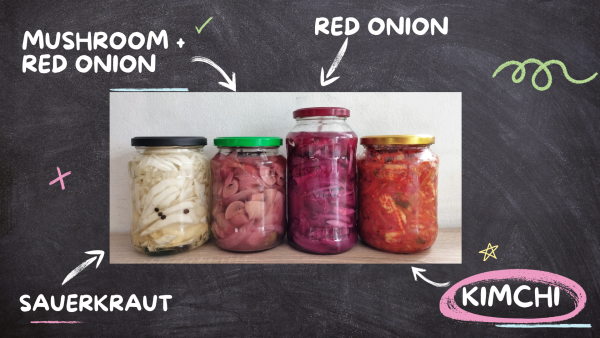
My husband's favourite is sauerkraut (which, unlike the traditional dry-salted method, I make with a brine so it has more juice and a softer flavour) and mine is kimchi, the national dish of Korea, which contains ginger, chilli and garlic along with a variety of vegetables. And my little boy - well, he likes to squeeze the cap of the recently put away fermented vegetables, because during the active fermentation phase, a lot of carbon dioxide is produced in the jar, which escapes with a funny sound when squeezed.
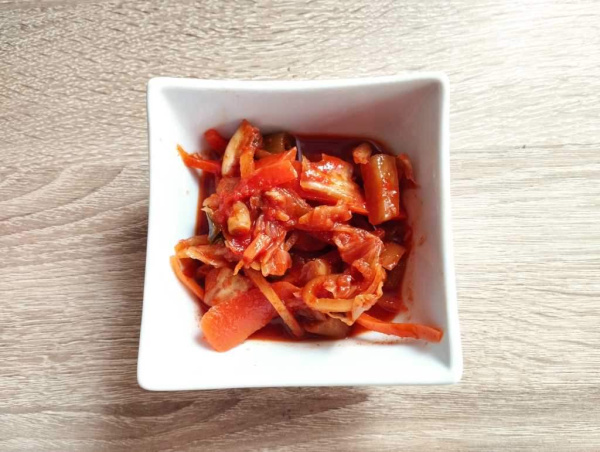
We have a garden, so we grow some of our own vegetables and we compost. We have also been part of the sharewaste.com community for several years, so if anyone near us does not know where to compost their food waste (because they live in an apartment, for example), we will take it from them. Currently, one family brings their compost to us weekly and another on an occasional basis.
I am lucky to have a good-sized pantry, and we have even converted part of the garage into a pantry where we store lots and lots of fermented, cooked, frozen and preserved food. So, sometimes I entertain and challenge myself with doing “buy nothing weeks”: I do not buy any food at all for a week or two, I cook with what I have.
Sometimes dried bread still accumulates in our kitchen. And we get rid of it by means of a very beneficial exchange in which our partners are our neighbour's hens: for dry bread, they give us fresh eggs. Who would not want such a nice exchange? :)
Eszter Csiki – Storage, saving leftovers and donations
Reducing food waste is one of the main sustainability challenges in our household, and in my experience, this requires a lot of awareness on our part. Fortunately, the habits and practices that can make a real difference are developing. One of my sticking points, which perhaps few people think about, is proper food storage. This has proved to be of paramount importance for vegetables, for example, radishes will last much longer and stay crisp if you soak them in water immediately after purchase and store them in the fridge.
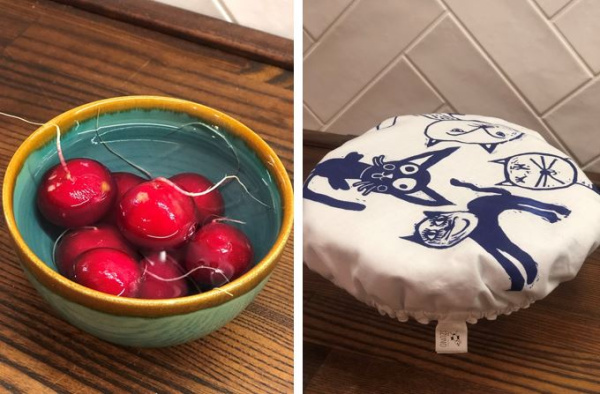
Boxes, bags, dish caps, even just a plate turned upside down on top of a bowl can extend the shelf life, or rather the juiciness, of a food, because let's face it, it is not the edibility that often scares you, but rather the appearance of food... (Which, I feel, is a rather risky thing if you have small children.)
It happened recently that we bought too many beetroots, which we did not eat all at the same time, so a sad, orphaned beetroot inspired me to make our usual weekly oat biscuit with beetroot, you can see our pretty pink biscuit as proof in the picture below J
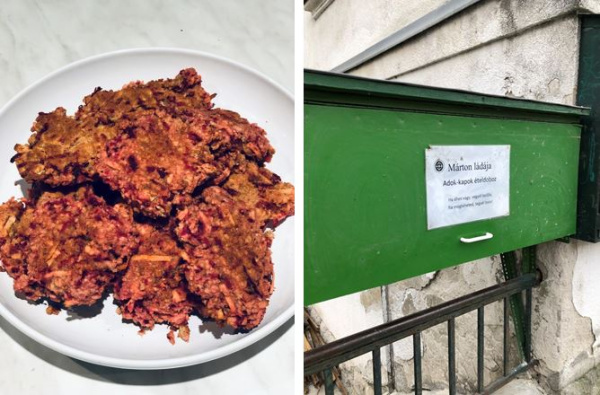
Alternatively, if you have cooked too much or are planning to travel for a few days, there is a food donation (or food-sharing) box near where you live, you can take the leftover (nicely boxed!) or additional food to be eaten by those who really need it.
And if food waste does occur, community composting is a good option for people living in the city & without pets. We belong to the group called "Compost Friends of Feneketlen-tó", where we not only bring our compost and volunteer to help around the site, but also receive potting soil at the end of the process.
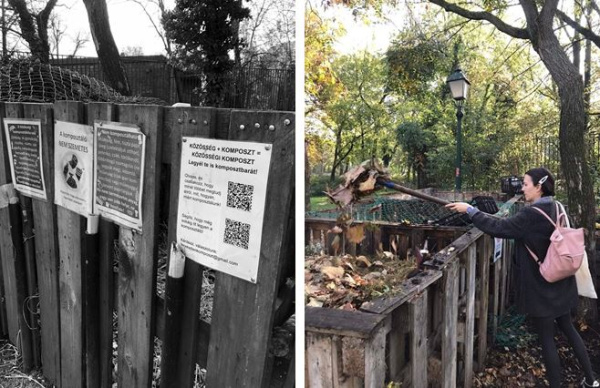
Orsolya Antal – Shopping list taken seriously, “best before” dates not so much…
We are no food waste reduction champions (or at least, not yet), but we have a few sure-fire tips for reducing the amount of stuff that goes into the (compost) bin:
We never go shopping hungry;
We strictly follow a carefully written shopping list (and check the fridge and pantry before we go);
Either we do not take the kids to the grocery store (but always to the market!) or if we do, everyone has a few things to get from the shopping list, so the children are busy looking for the things that are their responsibility and do not have the time to look around properly :);
We have decided to plan the weekly menu in advance several times, as we saw it done when we were kids, but our household is more spontaneous than that for now...;
We usually cook with whatever is closest to having to be composted;
What we do not eat in time, we freeze to prolong their life;
We try to store food properly and remember the tricks of our parents and grandparents (e.g. putting a small spoonful of sugar on top of opened jam so it does not go mould so quickly), but we do have our slip-ups...;
We try to keep a close eye on the fridge, freezer, pantry and discover what needs to be eaten before it expires;
We are flexible with “best before” dates and do not throw out anything that is still edible just because the date says it is "no longer of the highest quality".
Never throw out dry bread or buns, as they can be used to make all sorts of other dishes such as bun puffs, muffins, hot sandwiches, etc.;
We use leftovers to create new dishes, usually baked pies from leftover mashed potatoes, casseroles from boiled potatoes, Asian fried rice or rice pudding from rice, soup from fried vegetables, etc.;
Green waste and other organic waste is disposed of in the composter, while leftover food and bones are disposed of by our dog, who turns them into humus or … dog.
+1: We are eager to process the produce from our gardens - as long as we have the time and energy. The results of larger harvests benefit as many as 20 to 30 households around us, so nothing that has already been harvested is wasted.

There are many different methods, tricks and daily practices that help us reduce food waste, and we can learn a lot from each other in this area. As many houses as there are good habits, as they say.
In conclusion... at GreenDependent we as an organisation also pay a lot of attention, especially at our events, to reducing food waste. We have developed different ways of organising and doing things, and as a result, most of the time there is no food waste at our events! Should you be interested, you can read about our practices here.
Written by GreenDependent team members, with an introduction and closing by Edina Vadovics

